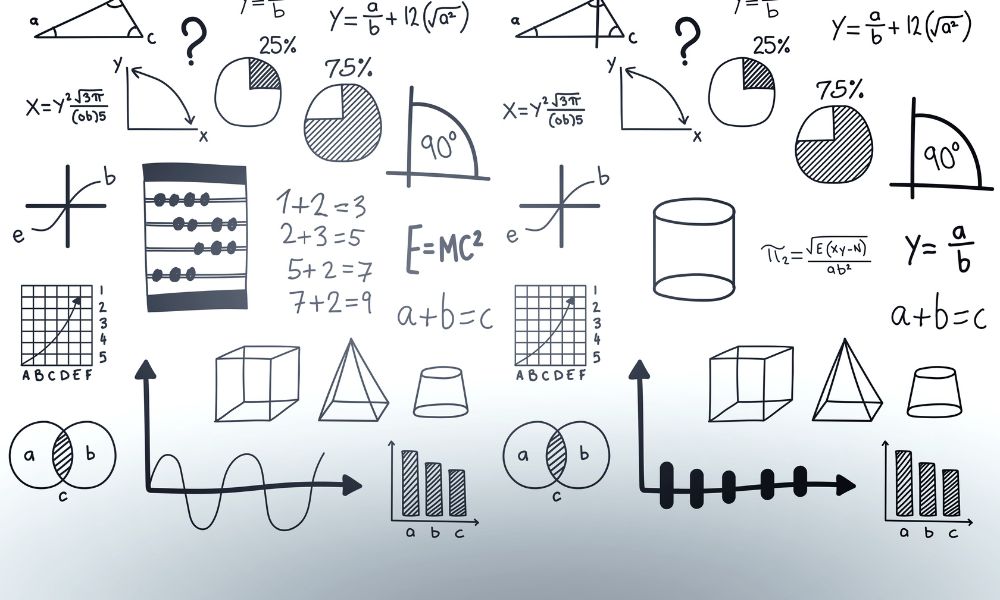
29 May Applied Math: How It’s Used in the Real World
APPLIED MATH: HOW IT’S USED IN THE REAL WORLD

For many college students, math can seem like an abstract and theoretical subject with little practical application in the real world. However, applied math is a branch of mathematics in many fields, including engineering, computer science, economics, and more. This article will explore some examples of applied math and how it is used in the real world.
What is Applied Math?
Applied math is the study of mathematical techniques and methods that are used to solve real-world problems. It involves applying mathematical principles to various fields, including science, engineering, economics, and finance. Applied mathematicians use mathematical models and computational tools to solve complex problems and make predictions about real-world phenomena.
Examples of Applied Math
Here are some examples of how applied math is used in the real world:
- Engineering: Engineers use applied math to design and optimize structures, machines, and systems. For example, mechanical engineers use mathematical modeling to design engines and other mechanical systems, while civil engineers use applied math to design bridges and buildings. Aerospace engineers also use applied math to design aircraft and spacecraft.
- Computer Science: Computer scientists use applied math to develop algorithms and computational problem-solving methods. For example, data scientists use applied math to create machine-learning models and analyze large datasets. Cryptographers use applied math to design and analyze cryptographic systems.
- Economics: Economists use applied math to model economic systems and predict future trends. For example, macroeconomists use applied math to model the behavior of national economies, while financial economists use applied math to model the behavior of financial markets. Econometricians use applied math to analyze economic data and predict future trends.
- Physics: Physicists use applied math to model physical systems and make predictions about their behavior. For example, astrophysicists use applied math to model the behavior of stars and galaxies, while particle physicists use applied math to model the behavior of subatomic particles. Biophysicists use applied math to model biological systems and predict their behavior.
- Biology: Biologists use applied math to model biological systems and predict their behavior. For example, population biologists use applied math to model the behavior of populations, while systems biologists use applied math to model the behavior of biological systems.

Why Study Applied Math?
Studying applied math can have many benefits, including:
- Improved Problem-Solving Skills: Applied math helps students develop strong problem-solving skills, which are valuable in many fields. Students can better understand the underlying principles and develop creative solutions to complex problems by learning to model real-world problems mathematically.
- Career Opportunities: Many careers require a strong background in applied math, including engineering, computer science, finance, and more. Students can open up many career opportunities and increase their earning potential by studying applied math.
- Personal Development: Studying applied math can be a rewarding experience that helps students develop their critical thinking skills and expand their knowledge of the world. By studying real-world problems and developing solutions, students can gain a deeper appreciation of the world’s complexities and how math can be used to make a positive impact.
How to Study Applied Math
Studying applied math requires a strong foundation in mathematical concepts and principles. Here are some tips for studying applied math:
- Build a Strong Foundation: Before studying applied math, ensure you have a strong foundation in basic math concepts, including algebra, geometry, trigonometry, and calculus.
- Develop Your Analytical Skills: Applied math requires strong analytical skills, including analyzing complex problems and developing mathematical models.
Many college students struggle with applied math, either because they have difficulty with math in general or because they find it hard to see the relevance of math to their chosen field of study.
If you are in college and need help with applied math, here are some tips that might help:
- Seek Help: Be bold and seek help if you need help with applied math. Many colleges and universities offer tutoring services for math, and online resources are available, such as Khan Academy and Mathway.
- Practice, Practice, Practice: The key to success in applied math is practice. Try to work through as many examples and practice problems as possible to help reinforce your understanding of the material. As you practice tackling real-world problems, it will help you understand these concepts.
- Focus on Relevance: If you are struggling to see the relevance of math to your field of study, try to focus on examples and problems that are relevant to your area. For example, if you study economics, focus on applied math problems related to economic modeling and analysis. If you study engineering, applied math problems are emphasized for designing and optimizing structures and systems.
- Build Your Mathematical Toolbox: Applied math requires knowledge of various mathematical concepts and techniques. Ensure you understand basic math concepts, such as algebra, geometry, and calculus, and try to learn additional techniques and ideas as needed. You can also use software and online calculators to help you with complex calculations.
- Stay Motivated: Finally, staying motivated is important when studying applied math. Remember that math is a valuable tool that can help you solve real-world problems and positively impact your field of study. Try to focus on your goals and stay positive, even when you encounter challenging issues.
In conclusion, applied math is a valuable tool in many fields, from engineering to economics to biology. If you are in college and need help with applied math, many resources are available to help you succeed. By seeking help, practicing regularly, focusing on relevance, building your mathematical toolbox, and staying motivated, you can develop strong applied math skills that will serve you well in your future career.
We Also Offer:
Craig Selinger
Latest posts by Craig Selinger (see all)
- Psychotherapy and Support Services at Cope With School NYC - April 12, 2024
- NYC Parents of Teens Support Group - April 8, 2024
- Here I Am, I Am Me: An Illustrated Guide to Mental Health - April 4, 2024



No Comments